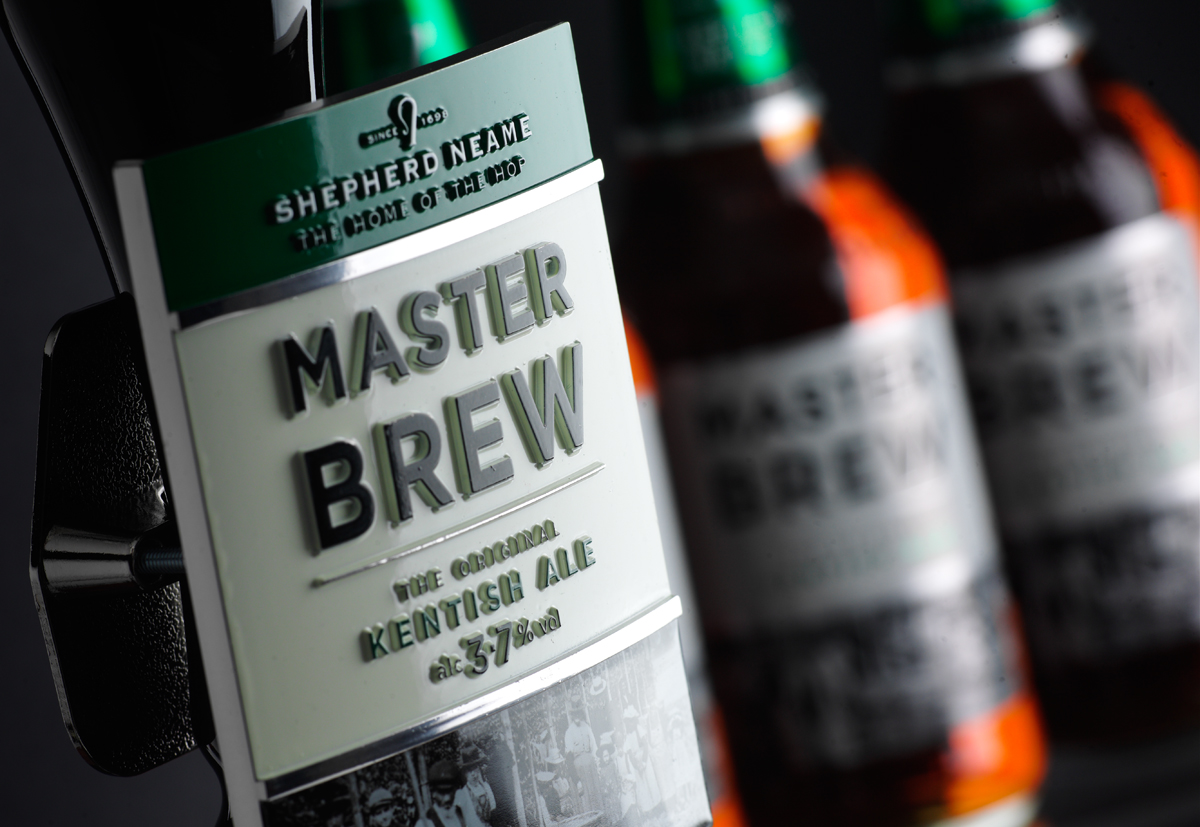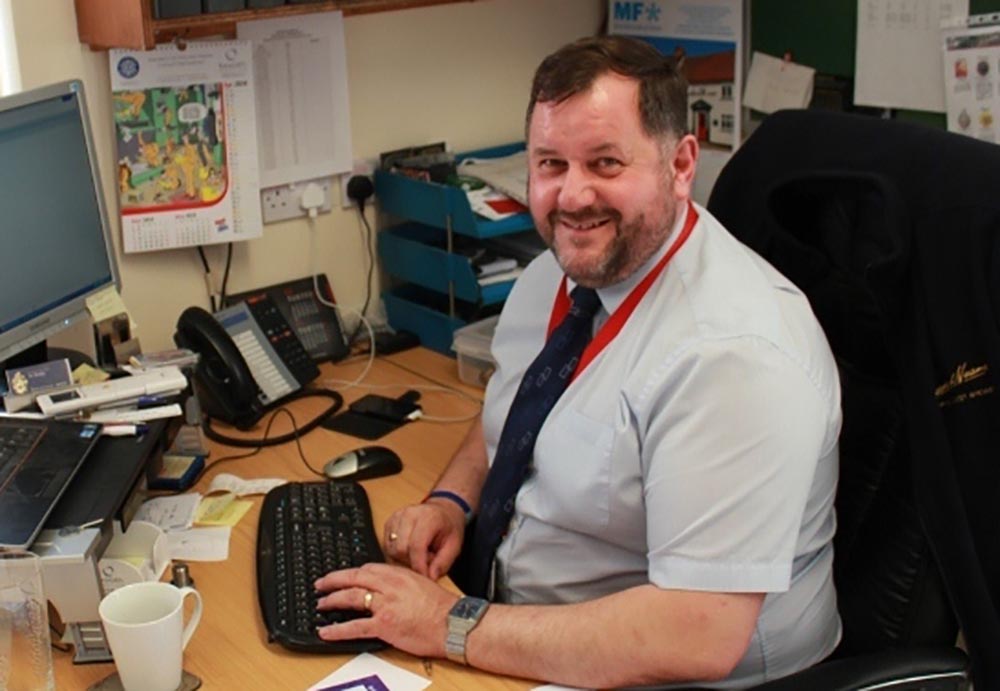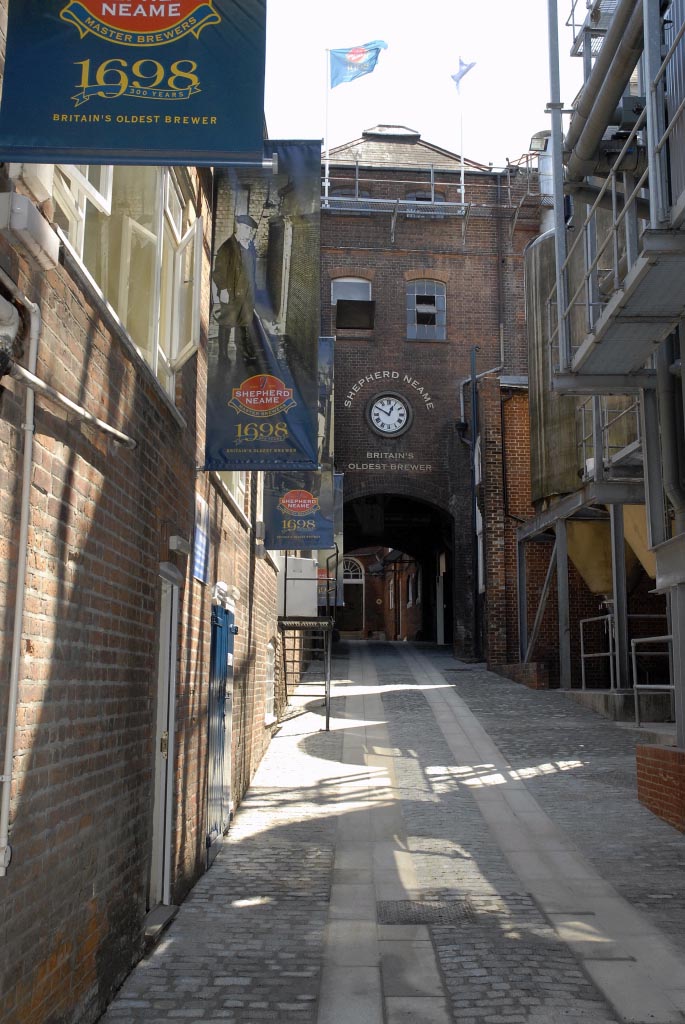Ian Barsby - Trade Quality Services Manager
Age: 50
Lives: Westgate-on-Sea
Education: Diploma in Management Studies
Career: After leaving school he worked as a butcher, before going to work for a Margate firm making traditional beer engines in 1988. He joined Shepherd Neame as a Technician in 1996, was promoted to Supervisor in 1998, and appointed Trade Quality Services Manager in 2000.
Positions held: Vice chairman of the National Brewers Technical Liaison Group since 2000; Trainer for National Certificate for Cellar Service Installation and Maintenance since 2001
Hobbies and interests: Karate, DIY and walking
Favourite Shepherd Neame beer: Bishops Finger
Favourite non-Shepherd Neame beer: Timothy Taylor’s Landlord
What are your main responsibilities? I manage a team of 11. Our department is responsible for the beer dispensing equipment in all our outlets, and offering training and support to ensure our beers are being dispensed in the best possible condition.
What does a typical day involve? There isn’t a typical day. About 60% of our work is fixing problems, with the other 40% installation, so a lot of our work is reactive. I can be in the office, organising the team, or travelling all over. I conduct site inspections, and I go out and do service work when necessary. It is great to get out and work with the guys.
What personal characteristics help you in your role? Good communication skills are essential, as we have a diverse range of customers, from luxury London hotels to local working men’s clubs and restaurants. It is also very important to be creative, as the industry is constantly evolving, so you have to be aware of your competitors’ work and come up with new ideas.
What achievements are you particularly proud of? We have been holding beer and food matching evenings at our pubs around the South East for the past four years. I call it ‘edutainment’, as it is a social evening, but it also teaches members of the public about beer, and offers an opportunity to educate staff about the best beer dispensing practice. We host and run around 20 sessions a year. Also, in February this year we decided to appoint a second Technical Quality Advisor, joining Bryan Mulhern, who has been in the role for over 10 years. The pair help new landlords and managers understand the equipment and best practice for beer dispensing, offering advice and support.
What are the most rewarding parts of your job? It is very satisfying to walk away from a site knowing you have fixed a problem or created something special. It is particularly rewarding when you get a compliment for a job well done, that you can pass on to the team.
What is tough about the job? We have an enormous area to cover, and everybody thinks their job is most important, but we have to prioritise need, which can be hard.
What attracted you to the industry? I had a Saturday job at the local butcher’s from the age of 13, so when I left school I just went into that profession. I had always wanted to be a carpenter and work with my hands, but I couldn’t get an apprenticeship. Luckily, when I was 24, a friend’s father approached me to see if I would be interested in working for a Margate firm which made traditional beer engines, and it seemed the perfect opportunity to finally pursue my dream. The role at Shepherd Neame followed, and I still love my work as much as ever. It is a rare and unique job.
Has the industry changed since you first joined? Having in-house technical services has become more of a rarity and a selling point. We understand our products and have years of experience in what we can do to get it right, while outside contractors don’t have that passion or knowledge. The industry is always changing, so it is essential to make sure you keep up with technology and offer the best service. Another big change is the introduction of the National Certificate for Cellar Service Installation and Maintenance Technicians three years ago. It is the first recognised qualification for the industry and means that we can now provide structured training programmes and apprenticeships.


